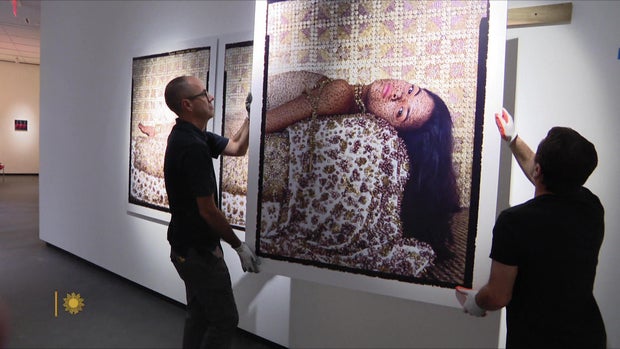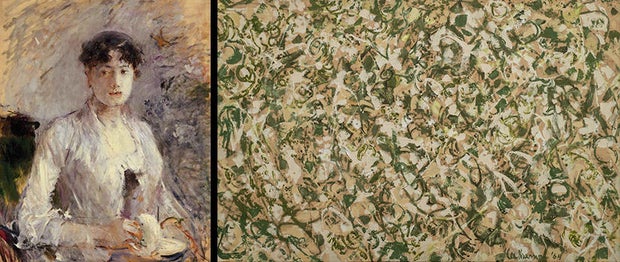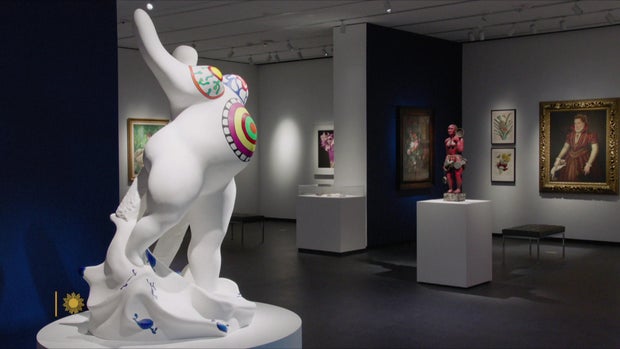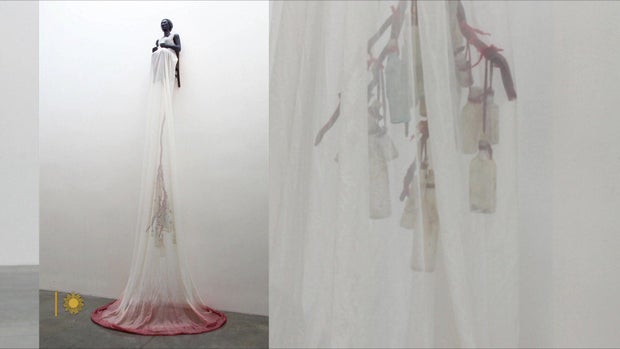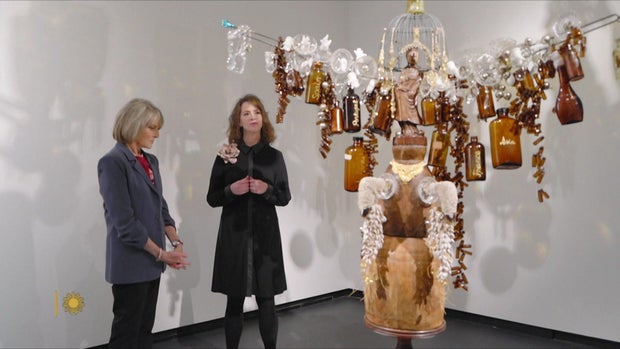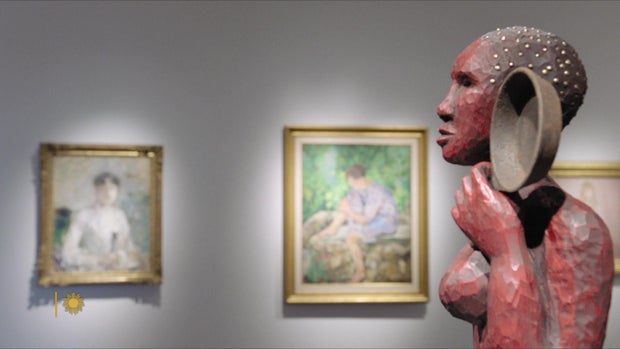
It’s been more than two years and almost $70 million, but at long last the National Museum of Women in the Arts, in Washington, D.C., is relaunching. When this museum opened in 1987, it was the first in the world devoted exclusively to art made by women.
An independent, non-profit organization, it was the vision, explained museum director Susan Fisher, of one woman: Wilhelmina Cole Holladay, a philanthropist and collector in Washington. “She had studied art history, and she was very much interested in the concept of beauty, which she talked about all the time,” said Sterling.
CBS News
It was on a trip to Europe in the 1970s with her husband, Wallace, when Holladay became fascinated by the work of 16th century Flemish painter Clara Peeters, and wanted to learn more about her. But when Holladay returned home, “She could not find Clara Peeters,” Sterling said. “And what she realized also was there was not a single woman artist in that history textbook that was used across every university in the U.S. at the time.”
So, the Holladays started collecting works made by women, eventually joining with other like-minded enthusiasts to purchase an abandoned building that had once been the D.C. headquarters of the Masons (where, ironically, women were not allowed).
And according to Sterling, the museum was controversial from the start: “Because men critics didn’t like the fact that there was such a museum, and the same could be said for many men artists. But also, it was controversial because sometimes, women felt that they didn’t want to be segregated in a museum just for women. I think we’ve essentially beat that rap, if you will.”
The museum, which has about 6,000 objects in its collection, has raised the profile of women artists. Curator Kathryn Wat showed “Sunday Morning” around the museum’s newly-imagined galleries – brighter, airier, and brimming with stunning works, like “Young Woman in Mauve” by Impressionist painter Berthe Morisot, who’s often received less attention than her male counterparts.
National Museum of Women in the Arts; © The Pollock-Krasner Foundation/Artists Rights Society (ARS), New York
And “The Springs” by expressionist Lee Krasner, often referred to as Jackson Pollack’s wife.
Braver asked, “What’s wrong with that?”
“Everything’s wrong with that,” Wat replied. “Because Krasner was as talented as her very famous husband.”
Today the museum is packed with works by women who have gained international renown, including photographers Berenice Abbott and Mary Ellen Mark; painters Georgia O’Keeffe and Amy Sherald; potter Maria Martinez; and multi-media artists Judy Chicago and Niki de Saint Phalle.
CBS News
“It’s wonderful to come into the space and know that all of this work is made by women,” said artist Alison Saar. “It’s just really incredible to see the breadth of the work.”
Saar makes prints and sculptures that focus on her biracial background, and much more: “I’m very interested in women and their lives, and how we function within the world and even within our own world,” she said.
Saar’s recent sculpture “Undone” is now on display: An elegant woman wearing a lovely dress that cloaks closed-up bottles, representing her dreams. “Women were never, maybe, given the opportunity to be who they wanted to be … aspirations that maybe never will [manifest]. But I mean, they’re still there. I don’t want to be too dark! But you know, yeah, it’s just reality.”
CBS News
The sculpture exhibit called “The Sky Is the Limit” features works like “Lady of Commerce,” by Rina Banerjee, an American born in Kolkata, India. Wat said, “It’s about colonialism and the impact of colonialism in terms of history. What are the forces that drive business? What are the forces that drive politics?”
CBS News
In fact, over the years gender politics and protests by women artists have helped make a difference, with more women artists being exhibited in major museums around the country.
So, Braver, asked, “Do you really still need a place like this?”
“Oh, I think so,” Wat replied. “Because I think this museum, for almost the past 40 years, has had a tremendous impact in getting that conversation going and keeping it going. So, while we’re thrilled that other art institutions are now picking up the mantle with us, we all need to keep the effort moving forward. There’s a lot of work to be done.”
CBS News
For more info:
Produced by Sara Kugel and Julie Kracov. Editor: Chad Cardin.
